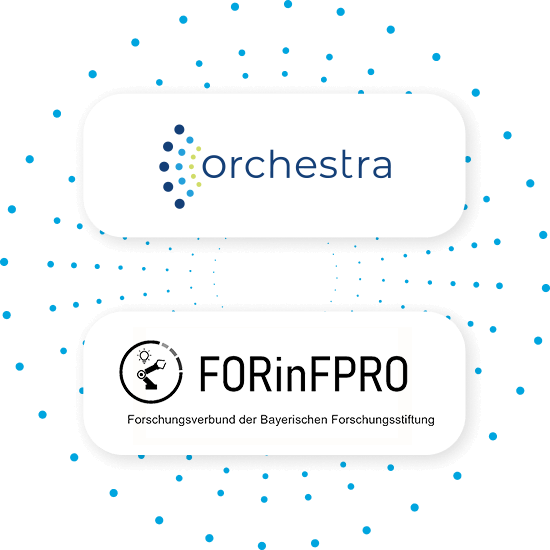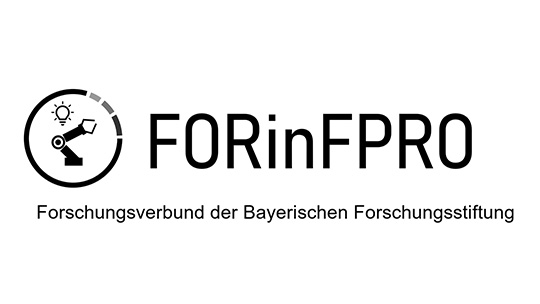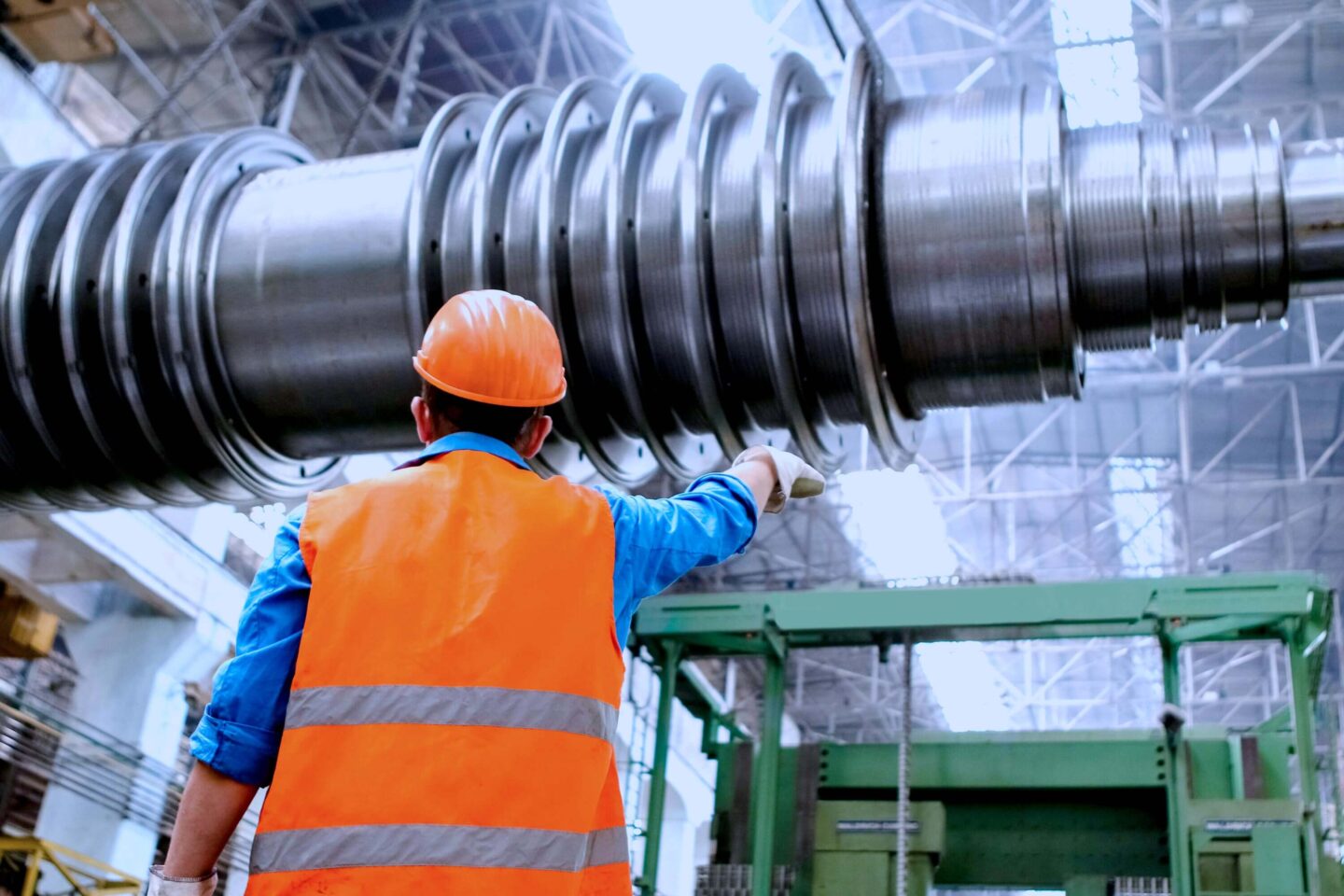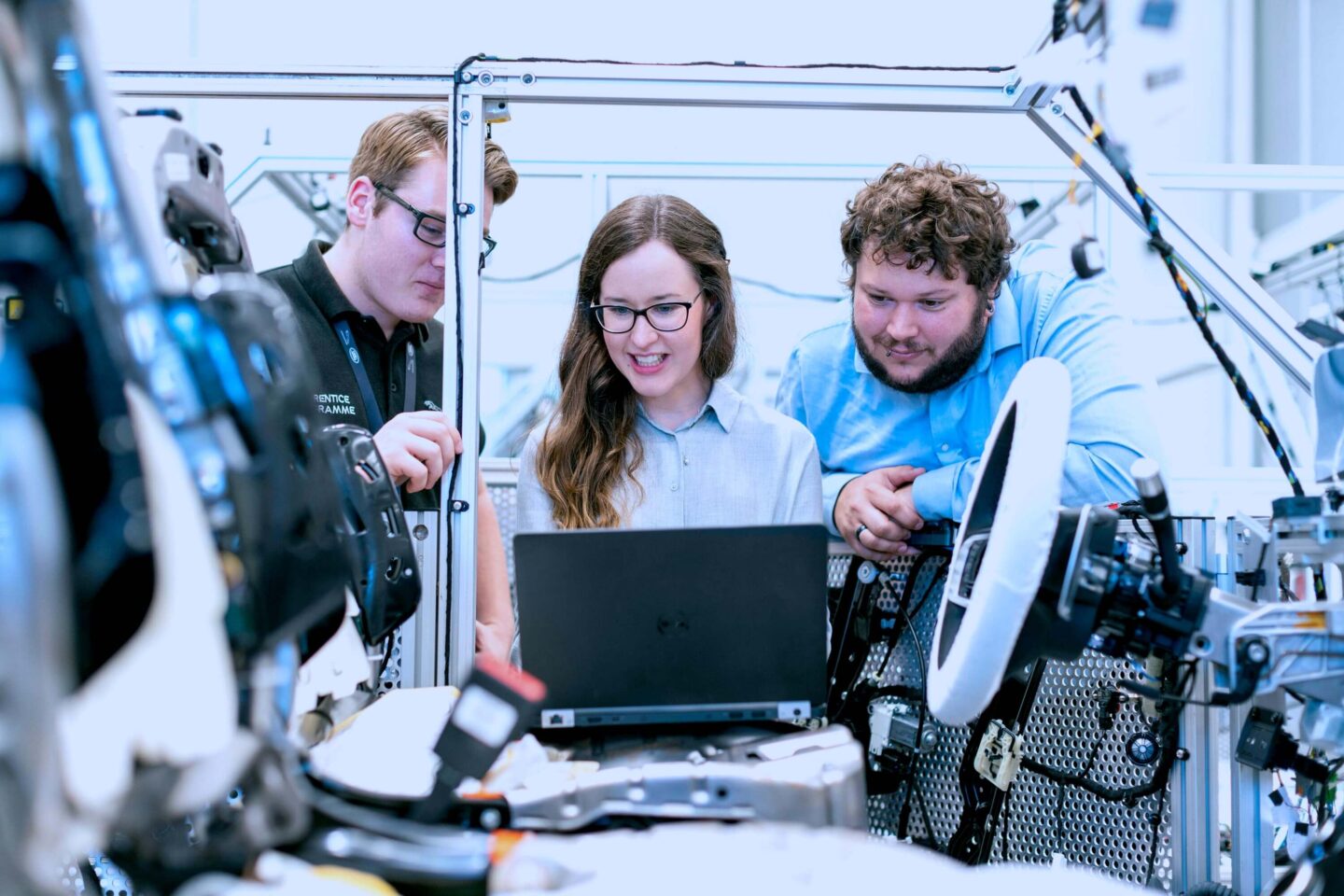FORinFPRO
Automated machine connection to a Shepard database via Orchestra

About the FORinFPRO research project
How can self-adaptive control systems for machines, systems and process chains be realised that learn from past process steps in order to adapt to future process requirements?
The Bavarian research association ‘Intelligent Manufacturing Processes & Closed-Loop Production’ (FORinFPRO) was established in March 2024 to investigate this research question. As a network, FORinFPRO is responsible for a total of seven sub-projects that aim to optimise production technology through the use of artificial intelligence (AI) and self-adaptive control systems.
The aim is to use self-learning systems to increase the quality and efficiency of production processes, enable greater flexibility and maximise resource efficiency at the same time. This is achieved by analysing, monitoring and linking individual process steps to form a closed control loop in production.

The role of soffico in the FORinFPRO network:
Automated machine connection to a Shepard database through Orchestra
The Orchestra low-code data integration platform is used in the research network for the automated connection of the machines to a Shepard database. The fact that the researchers do not have to programme APIs for the connection themselves, but only have to configure interfaces that have already been generated, makes their day-to-day work in the project much easier. In addition, the automated connection process to the database is extremely scalable, as the interfaces exist and can be used as often as required.
The challenges in the FORinFPRO research projects
There are three central challenges to be solved in the seven sub-projects of FORinFPRO:
- The networking and control of the various production processes
- The high demands on sensor technology
- Modelling and control in real time

Core objectives of FORinFPRO:
Quality, robustness and resource efficiency
The central objectives of the research network are:
- The improvement of component quality
- Increasing process robustness
- A more sustainable use of resources
Self-adapting systems that learn from past processes are being developed to actively compensate for material fluctuations and enable precise adjustments to future requirements. These self-regulating systems are particularly advantageous when using recycled materials, whose properties often vary, as they ensure consistently high product quality.
Through the intelligent use of AI, these systems should also predict energy requirements depending on the process and integrate renewable energies in a targeted manner. This approach contributes significantly to the ecological and economic optimisation of production.
The aim is to extend the developed closed-loop system to other areas and production processes and to create a robust infrastructure that can be flexibly adapted and continuously improved.
In the future, Orchestra should also enable the connection of machines to an AI application for adaptive process control in production outside the research context.
Use cases and innovative processes
FORinFPRO realises its research on the production of lightweight components, such as those used in the automotive and aerospace industries.
Advanced processes such as wet-laid nonwoven production, nonwoven forming, injection moulding, infusion processes and ultrasonic welding are used here, which are logically linked together in a cross-process chain.
The manufacturing processes consist of many small process steps with different parameters. These production steps are monitored and controlled using process-specific sensors and digital models that enable a global control system. For example, if the nonwoven is too thick, the subsequent process steps can be automatically adjusted using algorithms.

Research partnerships and infrastructure
The project benefits from co-operation between science and industry. Eight research institutions and seven companies are working together in a total of seven sub-projects to develop solutions for complex, self-learning control systems and integrate them into real production processes. Among them is soffico GmbH, which enables uncomplicated and automated machine connection with its Orchestra low-code data integration platform. The University of Augsburg and the Technical University of Nuremberg provide innovative AI infrastructures for this purpose, including the Augsburg AI Production Network, which combines basic research with industrial applications.
Advantages in the research project through Orchestra
Outlook
The innovations within the FORinFPRO programme will make AI-supported production processes a reality in Bavarian industry in the future. The aim is to ensure sustainable, efficient and high-quality production that fulfils ecological and economic requirements in equal measure and can serve as a blueprint for other branches of industry.
The focus is on developing concepts for data-based modelling and optimisation of production processes. With the help of modern AI methods, the aim is to create a general process model that enables the solutions to be transferred to various industrial scenarios.
Markus Benndorff
